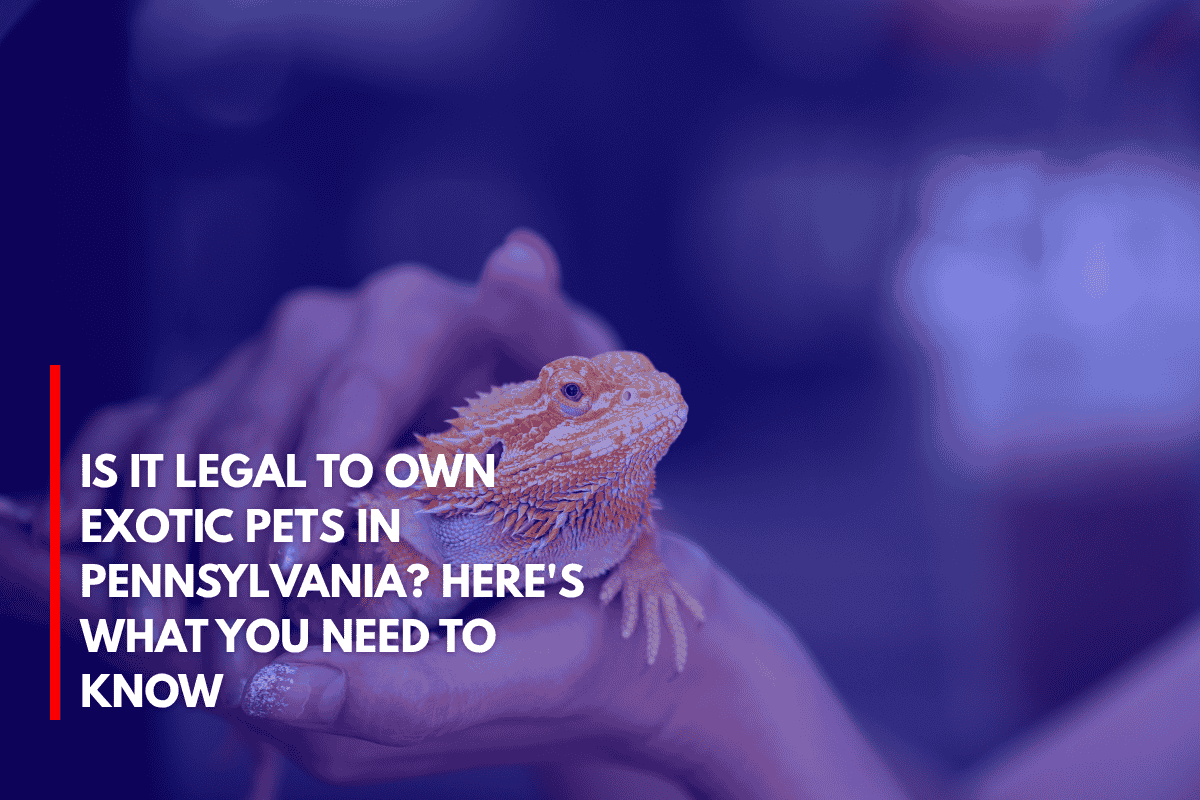Owning exotic pets in Pennsylvania is heavily regulated, and the legality depends on the specific animal and whether you have the required permits. Here’s a summary of the key points you need to know:
Legal Status of Exotic Pets in Pennsylvania
Permits Required for Most Exotic Animals:
Pennsylvania requires a permit to own exotic animals classified as “exotic wildlife.” This includes bears, coyotes, lions, tigers, leopards, jaguars, cheetahs, cougars, wolves, and any crossbreeds of these animals.
For each animal, a separate exotic wildlife possession permit is required, and the Pennsylvania Game Commission must be satisfied that the housing, care, and public protection standards are met.
New applicants must demonstrate two years of hands-on experience with care, feeding, handling, training, and husbandry of exotic animals.
Some Animals Are Allowed Without Permits:
Certain exotic pets, such as hedgehogs (when purchased within the state), non-native venomous reptiles (like boas, pythons, and anacondas), and ferrets, are allowed without a special permit.
Some hybrid cats, like Savannah cats and Bengal cats, are legal to own without a permit.
Animals That Are Illegal to Own:
Some animals, like raccoon dogs (tanuki) and chimpanzees, are illegal to own in Pennsylvania.
Native wildlife, such as chipmunks and squirrels, are protected and cannot be kept as pets.
While coyotes are considered exotic wildlife and technically require a permit, there is conflicting information: some sources state they are illegal to keep or own, while others indicate they may be permitted with proper documentation. Consult the Pennsylvania Game Commission for clarification.
Special Requirements for Certain Animals:
For animals like foxes, mink, raccoons, skunks, opossums, and others, ownership is allowed if they come from a USDA breeder approved by the Pennsylvania Game Commission.
Permits are required for many of these species, and you must contact the Game Commission for details.
Key Considerations
Permit Application:
You must provide proof of experience and demonstrate that you can provide proper housing and care for the animal.
Each animal requires its own permit.
Restricted and Prohibited Species:
Always check with the Pennsylvania Game Commission before acquiring an exotic pet, as laws can change and interpretations may vary.
Public Safety and Environmental Concerns:
The state’s regulations are designed to protect both the public and the animals themselves.
Summary Table
| Animal Type/Example | Legal to Own? | Permit Required? | Notes |
|---|---|---|---|
| Bears, lions, tigers, etc. | Yes (with permit) | Yes | Permit requires experience and proper housing |
| Coyotes | Unclear/with permit | Yes (if allowed) | Some sources say illegal; check with Game Commission |
| Foxes, mink, raccoons | Yes (with conditions) | Yes (in most cases) | Must come from approved USDA breeder |
| Savannah/Bengal cats | Yes | No | No permit needed |
| Hedgehogs, ferrets | Yes | No | Hedgehogs must be purchased within state |
| Chimpanzees, raccoon dogs | No | N/A | Illegal to own |
| Chipmunks, squirrels | No | N/A | Protected native wildlife |
Most exotic pets in Pennsylvania require a permit, and some are outright prohibited. Always verify the current regulations with the Pennsylvania Game Commission before acquiring any exotic animal.
Sources:
- https://www.thesprucepets.com/exotic-pet-laws-1238565
- https://www.animallaw.info/statute/pa-exotic-pets-subchapter-d-permits-relating-wildlife-chapter-147-special-permits-subchapter
- https://philly.citycast.fm/explainers/exotic-pets-allowed-in-pennsylvania
- https://exoticpetwonderland.org/2024/01/19/what-exotic-pets-are-legal-in-pennsylvania/











Leave a Reply